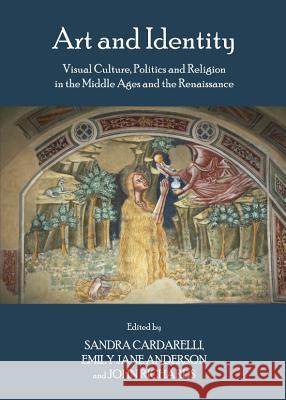Art and Identity: Visual Culture, Politics and Religion in the Middle Ages and the Renaissance » książka
Art and Identity: Visual Culture, Politics and Religion in the Middle Ages and the Renaissance
ISBN-13: 9781443836289 / Angielski / Twarda / 2012 / 310 str.
This book provides a fully contextualised overview on aspects of visual culture, and how this was the product of patronage, politics, and religion in some European countries between the 13th and 17th centuries. The research that is showcased here offers new perspectives on the conception, production and reception of artworks as a means of projecting core values, ideals, and traditions of individuals, groups, and communities. This volume features contributions from established scholars and new researchers in the field, and examines how art contributed to the construction of identities by means of new archival research and a thorough interdisciplinary approach. The authors suggest that the use of conventions in style and iconography allowed the local and wider community to take part in rituals and devotional practices where these works were widely recognized symbols. However, alongside established traditions, new, ad-hoc developments in style and iconography were devised to suit individual requirements, and these are fully discussed in relevant case-studies. This book also contributes to a new understanding of the interaction between artists, patrons, and viewers in Medieval and Renaissance times.











